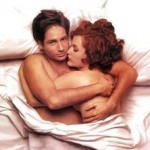 Many people have difficult in controlling sexual urges and behaviors and the underlying thoughts that go with them. This type of hypersexuality, where the behavior actually begins to be harmful or damaging to the person, may cross the line into an addiction. However, there are some people that are simply impulsive or lack the socially appropriate inhibitions that prevent highly sexualized behavior that is inappropriate.
Many people have difficult in controlling sexual urges and behaviors and the underlying thoughts that go with them. This type of hypersexuality, where the behavior actually begins to be harmful or damaging to the person, may cross the line into an addiction. However, there are some people that are simply impulsive or lack the socially appropriate inhibitions that prevent highly sexualized behavior that is inappropriate.
Deciding if the sexualized behavior is an addiction or simply a lack of impulse control is best left to the professionals. An addiction therapist can evaluate a client and set up a treatment plan that will assist in dealing with the impulsivity or the addiction. Surprisingly this type of treatment plan is just what I wrote about in my book, “The Law of Sobriety”. Although the book is specific written to assist with substance addictions, the model is very applicable to sex addictions as well.
Generally the symptoms of a sex addiction as opposed to a willful desire to behave in a sexualized manner include:
- Failing to be able to resist impulses to engage in sexual acts that are inappropriate, unhealthy or risky
- Large amounts of time spend planning, fantasizing or preparing for sexual encounters.
- Inability to stop thinking, acting or behaving in a sexual fashion even when it is harmful to self or others
- Engaging in sexual activities, thoughts or behaviors at times that other activities are required (at work, school, social activities, etc)
- Withdrawal from previously enjoyed activities to pursue the sexual behavior
Different professionals have proposed other symptoms that are a continuation of the negative pattern of behavior. It is important to realize that some medications, mental health disorders or even medical conditions may cause changes in sexual behaviors that are not indicative of a sex addiction. Talking to a professional addiction therapist can help rule out these considerations.

